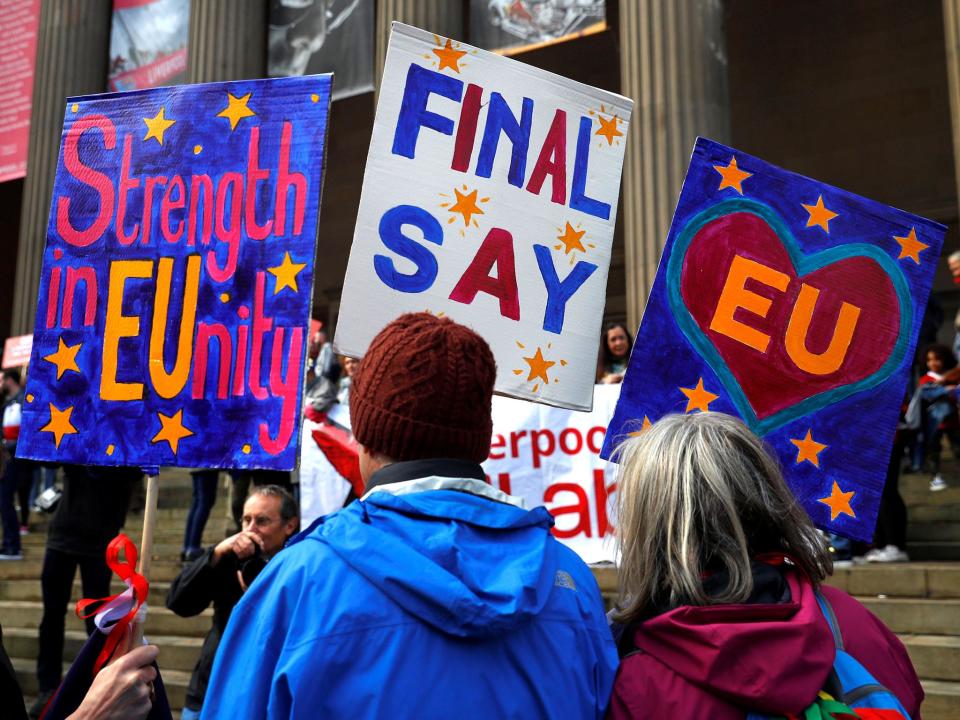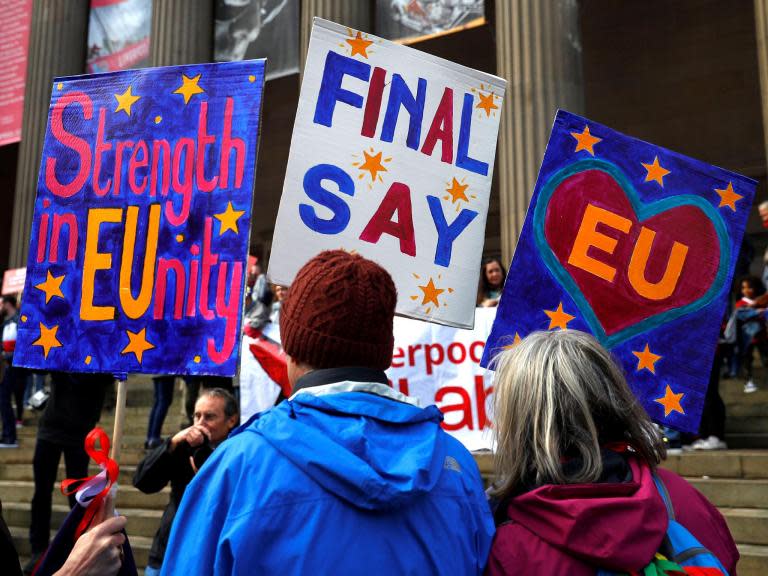Marching for a Final Say on Brexit tomorrow is the right thing to do, no matter how you voted
Those who voted Leave, Remain or nothing at all are deeply concerned about what is happening to the country. They demand the right to approve what is being done in their name, so often incompetently. They will be marching for a Final Say on Brexit through a People’s Vote in London because it’s crucial this government knows that we will fight for our right to be heard.
The number supporting our petition is approaching one million; many thousands will be expected to make their feelings clear on the streets of London. Britain is a bitterly divided nation, but it is also a better informed one after years of discussion about the single market, customs unions and the Good Friday Agreement. It is time for an informed expression of consent. The government needs to be told that loud and clear.
Even with the best will in the world, it is difficult to reconcile the current state of the Brexit negotiations with the cheery optimism of the Leave campaign in 2016. We have reached a double impasse, in Brussels and in Westminster. The best way to break it is to go back to the people. It is the right thing to do.
The 2016 referendum was a flawed exercise in so many ways, with propaganda masquerading as fact on both sides, and, as we have seen since, both sides being sanctioned by the Electoral Commission for their behaviour (some people would also like to see the Electoral Commission censured for its role).
What was never going to be possible to predict with any great precision is what sort of deal, if any, the UK would be able to reach with the EU in this unprecedented exercise (the exit of the Danish province of Greenland in 1984 was a relatively straightforward affair, and not of a sovereign member state).
Even now, less than 150 days away from the putative Brexit day, there is no “deal” that can be considered by the British people. Soon, and probably before the end of the year, it will be simply too late to organise one. At that point – and it may be sooner – the situation will at least be clear. There will be some sort of proposal in the name of the cabinet, whether it is called “Chequers” for shorthand or not; there will in any case be the possibility of a no-deal Brexit; and, in all decency, the option to stay in the EU.
Parliament has thus far shown itself unable or unwilling to make that choice. The latest notion being put around by government sources is that MPs will be invited to choose between the “May deal” and “no deal” – with no option, even by a supposedly sovereign parliament, to exercise its right to reject or amend the government proposition.
Some MPs, in all parties, will feel obliged to opt for the lesser of two great evils. They should not, because it is an unconstitutional choice. MPs from all parties, and especially Mr Speaker Bercow and the Commons authorities, must allow the Commons to use its procedures to reach a decision (if possible) that is freely and properly arrived at.
Whatever happens in the Commons – and an ugly mix of chaos and stasis is by the far the most likely outcome – a decision of this magnitude requires the full-hearted consent of the British people. We had the vote in 2016, and it was a vote to leave the EU, nothing more, nothing less. There was, however, no specific proposition on offer, no remote detail about the terms, no idea about the consequences.
Now we know, or at least we should know within weeks, what the terms of Brexit may be. The people deserve the right to approve those terms and to express their full-hearted consent. The 2016 mandate is inadequate to that task. As is sometimes said, there is a difference between agreeing to a surgical procedure in principle, and to giving formal informed consent once the consequences are known and explained. They were not known – could not possibly be known – in the summer of 2016.
It is not too late for such a vote. The EU has indicated a willingness to delay the Article 50 process while this necessary step is taken. Where there is a will – and there is great popular support for a Final Say vote – a way can be found to hold a free and fair referendum. Then the nation could feel more at ease with itself and the decision it takes. If not, the wounds will never heal.

 Yahoo News
Yahoo News 

